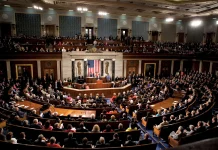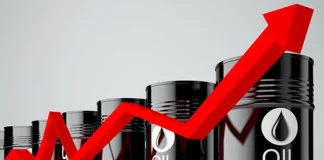In the first half of President Bola Tinubu’s term, the All-Share Index—which monitors the performance of every equity listed on the Nigerian Exchange Limited—rose by 34.11%.
According to statistics from Statisense, this is a better trajectory than what happened during the first half of his predecessor Muhammadu Buhari’s administration, when the ASI saw a decline of 19.51 percent.
This downward trend had been repeated four years prior, in 2010, with the ascension of previous President Goodluck Jonathan, when the ASI fell by 22.57%, from 25,829.75 to 20,000.76.
At the time, the Head, Financial Institutions Ratings at Agusto & Co, Ayo Olubunmi questioned, “What policies can they put in place to ensure this positive sentiment is sustained? We all know this sentiment, after the transition, after the new government comes into power, they will have like a brief honeymoon period in which either to sustain this positive sentiment or it will revert to a negative one.
“Don’t forget that after the 2015 election, when Muhammadu Buhari became the president, that positive sentiment was way much, then they were calling it the ‘Buhari effect’ and someone even nicknamed it ‘Buharieconomics’, but given the capital market attitude of the government then, we noticed that the sentiment was almost completely wiped away.”
Labelling it a positive spot for the Tinubu administration to launch its policies, Olubunmi said, ‘’They are not starting from ground zero but more work needs to be done. More efforts need to be put in place to ensure that that sentiment is sustained.”
Thus far, the sentiments had been sustained with the ASI crossing the historic 70,000 basis points in early November.
While some analysts noticed that investors had brushed aside projections of mixed sentiments, foreign exchange concerns and the macroeconomic headwinds in the market to focus on the impressive third-quarter results of listed companies, the Managing Director of Wyoming Capital, Tajudeen Olayinka, said that the decision of the Supreme Court putting to rest contentions about Nigeria’s presidency was also a factor in the bullish run of the capital market, which resulted in the historic high.
“The moment the litigation around the presidency was settled, it was believed that there would be no more distractions around the President and he could focus on the economy and those things that would affect the market positively.
“Secondly, the third quarter results from some of these public companies, especially the banking sector, we saw significant improvement perhaps because of the forex revaluation gains,” he said.
According to Statisense which tracked the performance of the ASI for the first six months of each administration from 1999 till date, the Tinubu administration had recorded the highest positive outcome for the ASI.
The report revealed that the first six months of former president Olusegun Obasanjo’s administration saw the ASI grow by 3.38 per cent to 5,108.08 from 4,919.51. The ASI grew by 10.10 per cent during the first six months of the late President Umaru Yar’Adua.
Speaking at the induction ceremony of new dealing clerks, the Chief Executive Officer of the NGX, Temi Popoola, said that the outlook for the market was positive, given the disposition of the government.
He said, “I do genuinely believe that when you look at everything, we have today a central bank governor who is pretty much like one of us. We have a finance minister who is like one of us. We have a president who also understands what capital markets do. You have several people in the infrastructure ecosystem, MOFI is an example, they understand what we’re doing. They’re one of us, and we’re at a point where we have been waiting for a very long time, where capital markets are needed to stimulate the growth of our country and the people.”
Interswitch Advocates Collaboration For Innovation And Resilience












